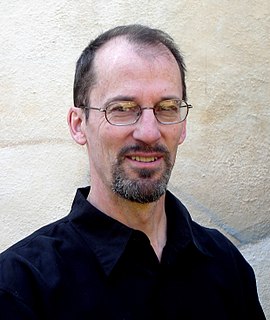 W
WDavid Pope Anderson is an American research scientist at the Space Sciences Laboratory, at the University of California, Berkeley, and an adjunct professor of computer science at the University of Houston. Anderson leads the SETI@home, BOINC, Bossa and Bolt software projects.
 W
WHagit Attiya is an Israeli computer scientist who holds the Harry W. Labov and Charlotte Ullman Labov Academic Chair of Computer Science at the Technion – Israel Institute of Technology in Haifa, Israel. Her research is in the area of distributed computing.
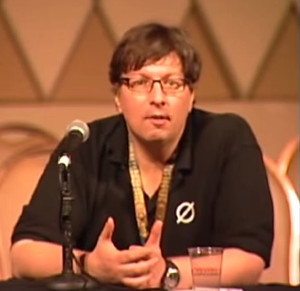 W
WMatt Blaze is a researcher in the areas of secure systems, cryptography, and trust management. He is currently the McDevitt Chair of Computer Science and Law at Georgetown University, and is on the board of directors of the Tor Project.
 W
WEric Allen Brewer is professor emeritus of computer science at the University of California, Berkeley and vice-president of infrastructure at Google. His research interests include operating systems and distributed computing. He is known for formulating the CAP theorem about distributed network applications in the late 1990s.
 W
WDavid Ethan Culler is a computer scientist and former Chair of the Department of Electrical Engineering and Computer Sciences at the University of California, Berkeley. He is a Principal Investigator in the Software Defined Buildings (SDB) project at the EECS Department at Berkeley and the Faculty Director of the i4Energy Center. His research addresses networks of small, embedded wireless devices, planetary-scale internet services, parallel computer architecture, parallel programming languages, and high performance communication. This includes TinyOS, Berkeley Motes, PlanetLab, Networks of Workstations (NOW), Internet services, Active Message, Split-C, and the Threaded Abstract Machine (TAM).
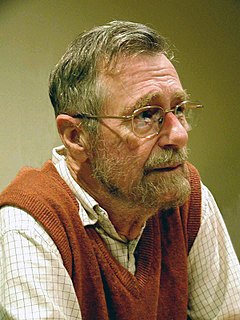 W
WEdsger Wybe Dijkstra was a Dutch computer scientist, programmer, software engineer, systems scientist, science essayist, and pioneer in computing science. A theoretical physicist by training, he worked as a programmer at the Mathematisch Centrum (Amsterdam) from 1952 to 1962. A university professor for much of his life, Dijkstra held the Schlumberger Centennial Chair in Computer Sciences at the University of Texas at Austin from 1984 until his retirement in 1999. He was a professor of mathematics at the Eindhoven University of Technology (1962–1984) and a research fellow at the Burroughs Corporation (1973–1984). In 1972, he became the first non-American, non-British, and continental European winner of the Turing Award.
 W
WShlomi Dolev is a Rita Altura Trust Chair Professor in Computer Science at Ben-Gurion University of the Negev (BGU) and the head of the BGU Negev Hi-Tech Faculty Startup Accelerator.
 W
WCynthia Dwork is an American computer scientist at Harvard University, where she is Gordon McKay Professor of Computer Science, Radcliffe Alumnae Professor at the Radcliffe Institute for Advanced Study, and Affiliated Professor, Harvard Law School and Harvard's Department of Statistics. She is a distinguished scientist at Microsoft Research.
 W
WFaith Ellen is a professor of computer science at the University of Toronto who studies distributed data structures and the theory of distributed computing.
 W
WRobert Gray Gallager is an American electrical engineer known for his work on information theory and communications networks. He was elected an IEEE Fellow in 1968, a member of the National Academy of Engineering (NAE) in 1979, a member of the National Academy of Sciences (NAS) in 1992, a Fellow of the American Academy of Arts and Sciences (AAAS) in 1999. He received the Claude E. Shannon Award from the IEEE Information Theory Society in 1983. He also received the IEEE Centennial Medal in 1984, the IEEE Medal of Honor in 1990 "For fundamental contributions to communications coding techniques", the Marconi Prize in 2003, and a Dijkstra Prize in 2004, among other honors. For most of his career he was a professor of electrical engineering and computer science at the Massachusetts Institute of Technology.
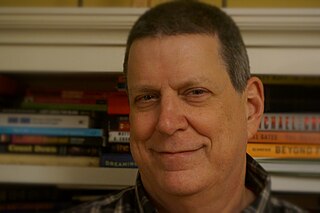 W
WAlbert Greenberg is an American software engineer and computer scientist who is notable for his contributions to the design of operating carrier and datacenter networks as well as to advances in computer networking and cloud computing. At Microsoft, he is a Distinguished Engineer and the director of development for its Microsoft Azure service, which is a cloud computing infrastructure platform which coordinates data centers around the world. In contrast to hard-wired computer networks, firms such as Microsoft are turning increasingly to software-defined networking approaches to run its cloud computing networks by managing virtual networks across "millions of servers". He oversees development of technologies that keep the network running in the cloud, so that when component failures happen, software systems pinpoint the failures and "route around the faulty components;" the technology permits data centers to be "software-defined", allowing the cloud to grow rapidly while being flexible to meet changing needs, as he explained in 2015 in eWeek magazine. His research focuses on the infrastructure of cloud services, management of enterprise networks, data center networks, and systems monitoring. Greenberg has won numerous awards for his contributions: he is an ACM Fellow, received the Koji Kobayashi Computers and Communications Award in 2015 for his "fundamental contributions to large-scale backbone networks and data-center networks," and won the prestigious SIGCOMM Award in 2015 for "pioneering the theory and practice of operating carrier and datacenter networks." In addition, he publishes in numerous scholarly journals on topics such as networking and cloud computing. He began his career at AT&T Labs and became division manager for network measurement engineering and research, was promoted to executive director and an AT&T Fellow, and was hired by Microsoft in 2007 as a principal researcher. In 2016, he was inducted into the United States National Academy of Engineering for "contributions to the theory and practice of operating large carrier and data center networks."
 W
WJoseph Yehuda Halpern is an Israeli-American professor of computer science at Cornell University. Most of his research is on reasoning about knowledge and uncertainty.
 W
WDaniel S. Hirschberg is a full professor in Computer Science at University of California, Irvine. His research interests are in the theory of design and analysis of algorithms.
 W
WRaj Jain is a professor of Computer Science and Engineering in the Washington University School of Engineering and Applied Science at Washington University in St. Louis, Missouri.
 W
WKen Kennedy was an American computer scientist and professor at Rice University. He was the founding chairman of Rice's Computer Science Department.
 W
WLeslie B. Lamport is an American computer scientist. Lamport is best known for his seminal work in distributed systems, and as the initial developer of the document preparation system LaTeX and the author of its first manual. Leslie Lamport was the winner of the 2013 Turing Award for imposing clear, well-defined coherence on the seemingly chaotic behavior of distributed computing systems, in which several autonomous computers communicate with each other by passing messages. He devised important algorithms and developed formal modeling and verification protocols that improve the quality of real distributed systems. These contributions have resulted in improved correctness, performance, and reliability of computer systems.
 W
WCharles Eric Leiserson is a computer scientist, specializing in the theory of parallel computing and distributed computing, and particularly practical applications thereof. As part of this effort, he developed the Cilk multithreaded language. He invented the fat-tree interconnection network, a hardware-universal interconnection network used in many supercomputers, including the Connection Machine CM5, for which he was network architect. He helped pioneer the development of VLSI theory, including the retiming method of digital optimization with James B. Saxe and systolic arrays with H. T. Kung. He conceived of the notion of cache-oblivious algorithms, which are algorithms that have no tuning parameters for cache size or cache-line length, but nevertheless use cache near-optimally. He developed the Cilk language for multithreaded programming, which uses a provably good work-stealing algorithm for scheduling. Leiserson coauthored the standard algorithms textbook Introduction to Algorithms together with Thomas H. Cormen, Ronald L. Rivest, and Clifford Stein.
 W
WBarbara Liskov is an American computer scientist who is an Institute Professor at the Massachusetts Institute of Technology and Ford Professor of Engineering in its School of Engineering's electrical engineering and computer science department. She was one of the first women to be granted a doctorate in computer science in the United States and is a Turing Award winner who developed the Liskov substitution principle.
 W
WMoni Naor is an Israeli computer scientist, currently a professor at the Weizmann Institute of Science. Naor received his Ph.D. in 1989 at the University of California, Berkeley. His advisor was Manuel Blum.
 W
WJuan Pavón is a Spanish computer scientist, full professor of the Complutense University of Madrid (UCM). He is a pioneer researcher in the field of Software Agents, co-creator of the FIPA MESSAGE and INGENIAS methodologies, and founder and director of the research group GRASIA: GRoup of Agent-based, Social and Interdisciplinary Applications at UCM. He is known for his work in the field of Artificial Intelligence, specifically in agent-oriented software engineering.
 W
WPablo Rodriguez is a Spanish computer scientist and researcher, who is best known for his research in the mid-2000s on peer-to-peer file sharing and user-generated content. After working for technology and communications companies AT&T and Microsoft Research, Rodriguez returned to Spain in 2006 to become the research director for telecommunications provider Telefónica. In 2010 took a position as an adjunct professor at Columbia University in New York.
 W
WPeter Ružička was a Slovak computer scientist and mathematician who worked in the fields of distributed computing and computer networks. He was a Professor at the Comenius University, Faculty of Mathematics, Physics and Informatics working in several research areas of theoretical computer science throughout his long career.
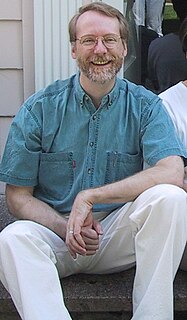 W
WMichael Lee Scott is a professor of computer science at the University of Rochester in Rochester, New York.
 W
WNir Shavit is an Israeli computer scientist. He is a Professor in the Computer Science Department at Tel Aviv University and a Professor of Electrical Engineering and Computer Science at the Massachusetts Institute of Technology.
 W
WRobert Eliot Shostak is an American computer scientist and Silicon Valley entrepreneur. He is most noted academically for his seminal work in the branch of distributed computing known as Byzantine Fault Tolerance. He is also known for co-authoring the Paradox Database, and most recently, the founding of Vocera Communications, a company that makes wearable, Star Trek-like communication badges.
 W
WAndrew James Stanford-Clark is a British information technology research engineer, specialising in telemetry and publish/subscribe messaging. In July 2017 he was appointed IBM CTO for UK and Ireland Previously, he led a research team at IBM. He is a Member of the IBM Academy of Technology, an IBM Master Inventor and visiting professor at Newcastle University. He also serves on the Engineering and Physical Sciences Research Council (EPSRC) peer review college and regularly delivers public talks.
 W
WPaul Michael Béla Vitányi is a Dutch computer scientist, Professor of Computer Science at the University of Amsterdam and researcher at the Dutch Centrum Wiskunde & Informatica.
 W
WAlexander L. Wolf is a Computer Scientist known for his research in software engineering, distributed systems, and computer networking. He is credited, along with his many collaborators, with introducing the modern study of software architecture, content-based publish/subscribe messaging, content-based networking, automated process discovery, and the software deployment lifecycle. Wolf's 1985 Ph.D. dissertation developed language features for expressing a module's import/export specifications and the notion of multiple interfaces for a type, both of which are now common in modern computer programming languages.
 W
WAkinori Yonezawa is a Japanese computer scientist specializing in object-oriented programming, distributed computing and information security. Being a graduate of the University of Tokyo, Yonezawa has a Ph.D in computer science from MIT in the Actor group at the MIT AI Lab. He currently teaches at the University of Tokyo. He is the designer of ABCL/R, a reflective subset of the first concurrent object-oriented programming language ABCL/1.